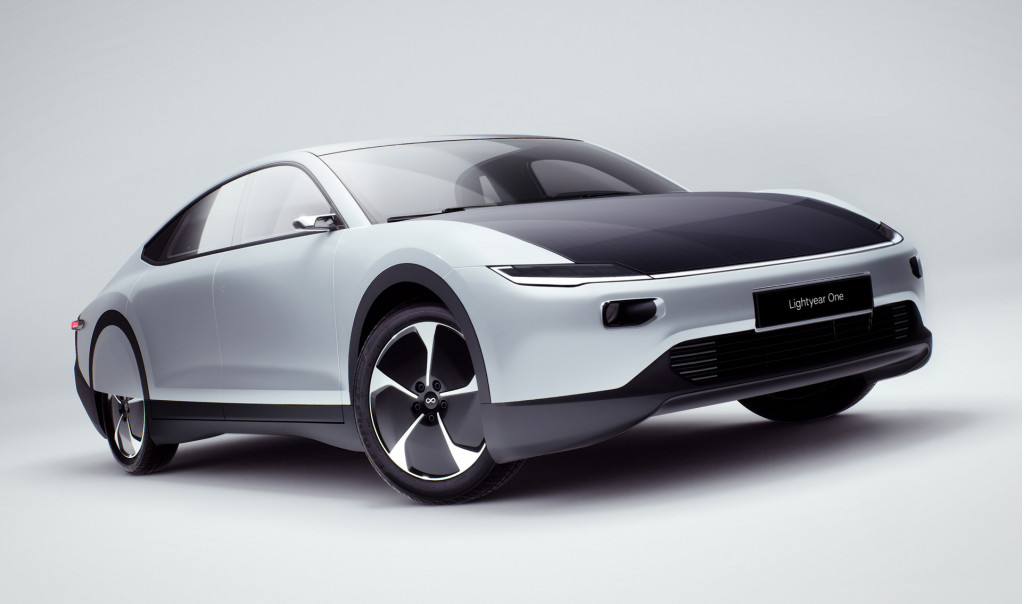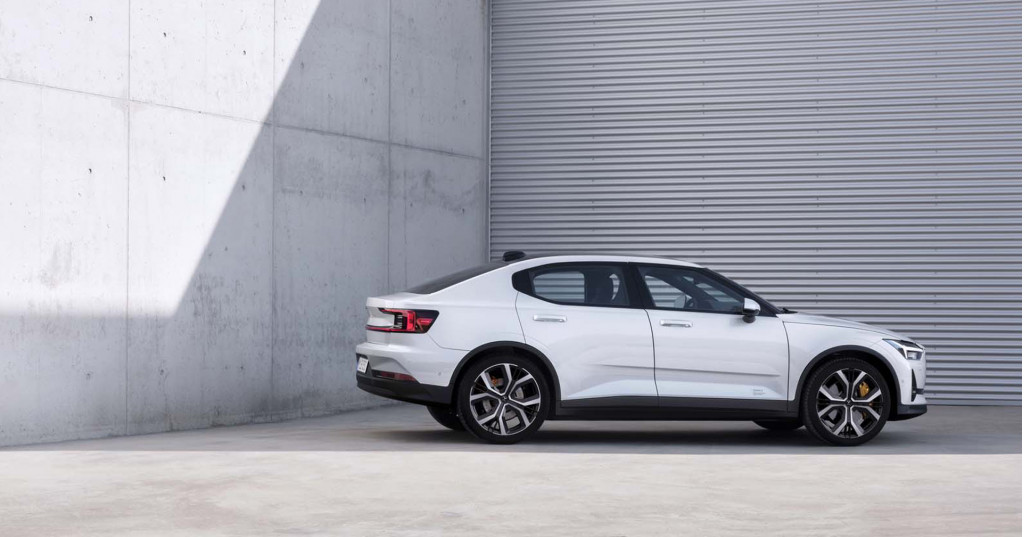Which automaker committed to a plant with battery giant LG Chem?
And why again is Toyota so committed to hybrids and not electric cars?
This is our look back at the Week In Reverse—right here at Green Car Reports—for the week ending December 6, 2019.
Sono Motors is aiming to make a compact car powered mostly by solar panels. We asked the company about how plans are moving along to build it as soon as next year, at a former Saab plant in Sweden—by actually dropping by their headquarters in Munich.

Lightyear One
Earlier in the week, we reported on how the Dutch solar-car startup Lightyear is focusing on efficiency and the message that it won’t be so dependent on infrastructure. It’s hired a Tesla executive in charge of the Model 3 rollout in Europe.
In other upcoming product news, Polestar announced Monday that production of its Polestar 2 electric car is ramping up in a new plant in Luxiao, China—and the company confirmed that the 2 will arrive in the U.S. next summer.

Polestar 2
The Audi E-Tron is getting a range boost in Europe—one that’s highly likely to make it to the U.S. for the 2020 model year.
Nissan’s fully electric crossover is long-overdue—and now, perhaps, more expensive than the automaker had previously hinted. Reports confirm the vehicle as conceived for the company’s Infiniti brand and for Europe. With Infiniti withdrawing from Europe, will there be a more affordable version?
The price of lithium-ion cells went down a lot again last year—even more than anticipated—and that led one firm to scoot up its prediction of when we’ll reach the pack-based cell price of $100/kwh.

2020 Porsche Taycan 4S
First crash test results rolled in this week for the Porsche Taycan. Both it and the Tesla Model X were exemplars of electric-car safety, earning a top five-star Euro NCAP overall rating.
Probably the most significant company announcement of this week came from an automaker that’s recently opposed California’s authority to mandate electric vehicles but supported a broadened EV tax credit: General Motors. GM and LG Chem announced a $2.3 billion joint venture to produce batteries in Ohio. Some of those will go into the automaker’s upcoming electric pickup, among other projects.
We also took a look at the complex set of reasons why Toyota has opted to resist the rollout of electric cars in the U.S., as the hybrid market founders.

2019 Guangzhou Auto Show
The Guangzhou Auto Show in China showcased a wide range of electric vehicles we’ll never see in the U.S.—including some from brands we know well.
Tesla CEO Elon Musk early in the week made comments that might confirm aerodynamics as an unexpected strength for the blunt-edged Cybertruck design.
Yes, cities outside of California—Chicago, for instance—are also starting to require that apartment and condo developments build parking spaces ready for elecric vehicle charging.

Hyundai Nexo
The Hyundai Nexo hydrogen fuel-cell vehicle appears to put Hyundai on track to pass Toyota in global hydrogen vehicle sales.
The Los Angeles region isn’t waiting around for federal or state regulations to step up plug-in vehicle requirements; it’s aiming for 80 percent of new-vehicle sales to be electric by 2025.
A $250 credit for EVgo fast charging is going to add some more road-trip convenience for Nissan Leaf drivers.

Volkswagen Type 2 electric conversion
Volkswagen recently reported that it has delivered 100,000 of its e-Golf electric cars; the announcement was a nice sendoff for the soon-discontinued model, and in synch with the electric Type 2 Microbus conversion done by EV West with off-the-shelf e-Golf components.
_______________________________________
